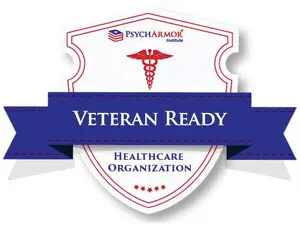What to Do If You Could Be Described as a ‘Dry Drunk’
 As a rule, you would never find us describing a person as a “drunk” on this blog. It’s unkind and unhelpful. Even more importantly, it’s inaccurate. A person suffering from a substance use disorder centered on alcohol should not be dismissively referred to as a drunk.
As a rule, you would never find us describing a person as a “drunk” on this blog. It’s unkind and unhelpful. Even more importantly, it’s inaccurate. A person suffering from a substance use disorder centered on alcohol should not be dismissively referred to as a drunk.
Breaking Down the Term
We’re going to bend our rule here, however, to talk about what it means to be a “dry drunk.” Make no mistake: we don’t approve of the term. But “dry drunk” is a commonly used phrase that describes a particular set of circumstances. In this space, we want to consider the circumstances that might lead to someone being described as a dry drunk—and what can be done about those circumstances.
What Does It Mean to Be a ‘Dry Drunk’?
The phrase “dry drunk” may seem like an oxymoron. After all, if you are dry—that is, if you are sober—how can you also be drunk? Aren’t the two conditions mutually exclusive?
A person who is described as a dry drunk has, in fact, stopped drinking. They are undeniably sober. The problem is that they may still be struggling with the same issues and behaving in the same problematic ways they did when they were drinking. They are behaving like a so-called drunk even though they are not consuming alcohol anymore.
But why would anyone do that? Turns out, there are a number of reasons—all of which are grounded in a simple truth.
Getting Sober Doesn’t Make Your Problems Disappear
People start drinking to excess for any number of reasons. They are stressed at work. They have problems at home. They are struggling with a mental health disorder and using alcohol to self-medicate in the hopes of keeping negative emotions at bay. They enjoy the way drinking makes them feel and develop a substance use disorder that makes it difficult to stop even when they no longer enjoy the effects of alcohol on their body or brain.
Getting treatment for their substance use disorder does not eliminate any of those issues (or others like them). There may still be stress at work or problems at home. A mental health disorder may still be in play. There may be ongoing feelings of nostalgia for the times when drinking made them feel good or helped them ignore their problems for a while.
And so, the person may still exhibit impulsive or reckless behavior or continue to sabotage relationships or seem unreasonably angry over small annoyances. Their behavior and demeanor may remind those around them—and may remind themselves—of how they were when they were drinking.
What’s the solution? A ‘dry drunk’ needs to come to grips with the issues that underpin their behavior—and which may have led to their drinking in the first place.
Stay Engaged With Your Support Network
If you find that you are exhibiting the behaviors of a dry drunk, don’t panic. Instead, take the steps necessary to get the help you need. Keep your therapy appointments (or restart your therapy) to bolster your mental health. Attend your 12-Step or other recovery program meetings. Build up your network of supportive friends and family who care about you and your sobriety and who can be counted on to let you know when you are still behaving like a so-called drunk even though you are sober.
These are, of course, the same sorts of actions you should take to lessen the risk of relapse. So whether or not you could be described as a dry drunk, each of these suggestions is still important to maintaining your sobriety over the long term.
Let’s Get You Started on the Road to Sobriety
At Seabrook, we offer withdrawal management and a robust rehabilitation program that includes group and individual therapy. We address co-occurring mental health disorders, and we provide strategies, resources, and a continuum of care to help you navigate the early days of your recovery journey.
We use evidence-based approaches to develop personalized treatment plans because we recognize that each individual comes to treatment with their own unique set of issues and needs. We see you as a person and not just as a client.
So if you are struggling with drugs or alcohol and want to regain your sobriety—and your life—we can help.



